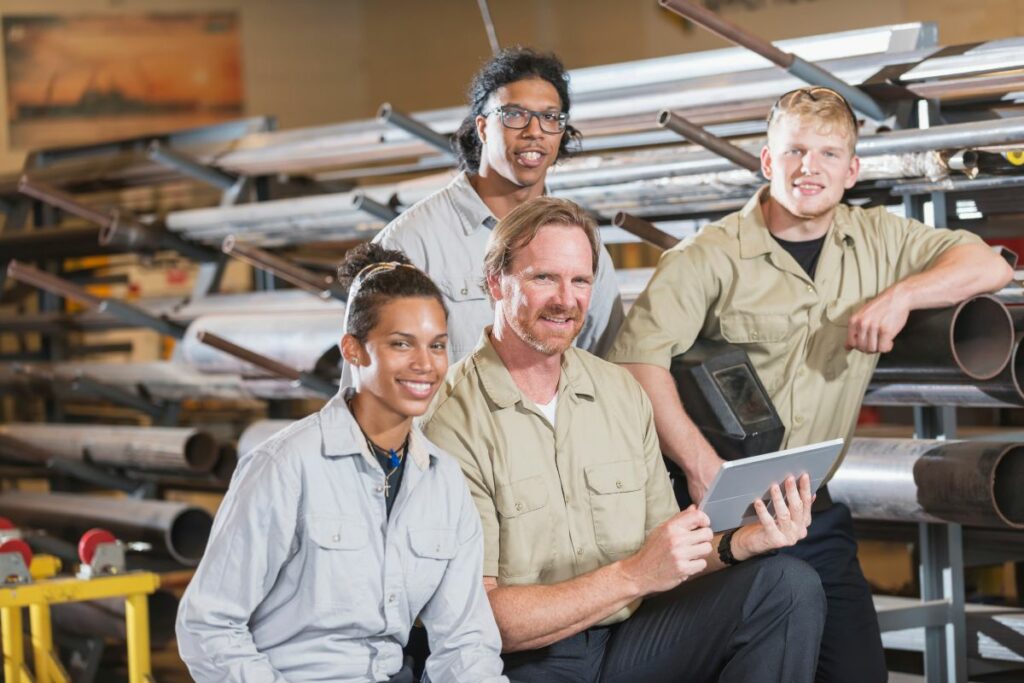
Embarking on the journey to become a professional welder is an exciting choice, but with several welding schools available, finding the one that aligns with your needs can feel difficult. Selecting the right welding school is important for your education and future career prospects. This blog will provide you with guidance on what to consider when choosing the right welding school for you, ensuring you receive the best education and training that will set you up on the road to success.
Before diving into specifics, it’s crucial to ensure that the welding school you’re considering is accredited and recognized by relevant authorities in your country. For New Zealand students, seek out schools that meet the standards set by respected industry organizations, such as Welding New Zealand. Accreditation guarantees that the school’s curriculum, instructors, and facilities adhere to industry standards, providing you with a reputable and high-quality education.
Welding encompasses a diverse field with various techniques and applications. When evaluating welding schools, take into account the variety of programs they offer. Do they provide comprehensive training in various welding methods, such as Metal Inert Gas (MIG), Tungsten Inert Gas (TIG), and stick welding? Additionally, you can inquire if they offer specialized courses such as underwater welding or pipe welding, depending on your interests and career aspirations.
Needless to say, instructors at a welding school play a pivotal role in your education, so it’s a good idea to check their qualifications and experience. Ideally, instructors should possess a blend of academic knowledge and practical experience in the New Zealand welding industry. Instructors with field experience can offer valuable insights and real-world applications that enrich your learning journey.
Welding is a hands-on skill that requires many hours of practice to master. When evaluating potential welding schools, consider visiting their facilities if possible. Do they have well-equipped workshops with modern welding equipment? Are the workspaces designed to promote a safe and effective learning environment? Practical experience is crucial for perfecting your skills and building confidence, so ensure that the school’s facilities meet your expectations.
Personalised attention from instructors is vital, especially in technical fields like welding. A low student-to-instructor ratio allows for more personalised interaction and guidance. This individualised attention can enhance your learning experience and give you the chance to ask questions, seek clarification, and receive feedback on your progress.
The ultimate goal of attending a welding school is to secure a fulfilling career in the field. Research whether the school has connections with local industries and employers in New Zealand. Do they offer job placement support, internships, or apprenticeships? Schools with strong industry ties can help kick-start your career by providing networking opportunities and guidance in your job search.
Testimonials from current students and alumni hold significant value. Reviews and success stories can provide valuable insights into the quality of education and training offered by the welding school. Connect with current students or graduates to learn about their experiences, career trajectories, and how well the school prepared them for the real-world challenges in New Zealand’s welding industry.
While cost shouldn’t be the sole determinant, it’s essential to consider your budget when selecting a welding school. Research tuition fees, additional expenses (like materials and equipment), and available financial assistance options. Scholarships, grants, and payment plans can alleviate financial strain and make quality education more accessible. Contact your local government to see what options are available to you.
Factor in the location of the welding school concerning where you reside or plan to live in New Zealand. If the school is far away, consider commute time and expenses. Additionally, evaluate the program’s schedule. Does it align with your current commitments and responsibilities? Whether you’re a full-time student or juggling work and education, finding a program with a schedule that suits your lifestyle is crucial.
Selecting the right school for your welding journey requires thoughtful consideration of various factors, from accreditation and program offerings to faculty expertise and job placement support. By thoroughly researching your options and aligning them with your goals, preferences, and circumstances, you can discover the perfect match that will set you on the path to a successful welding career. Remember, investing in your education now will yield rewards in the future for an exciting career as a skilled and proficient welder.